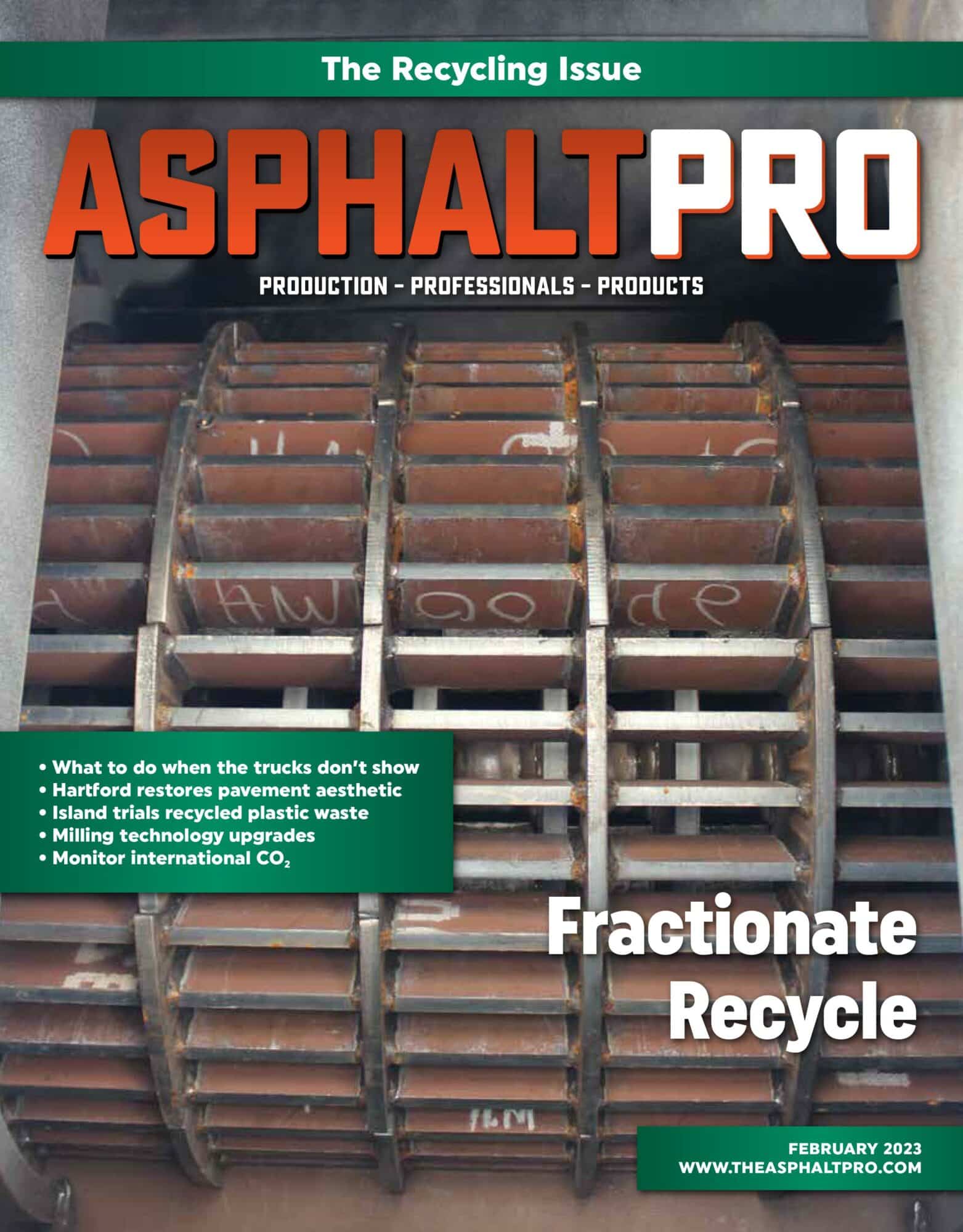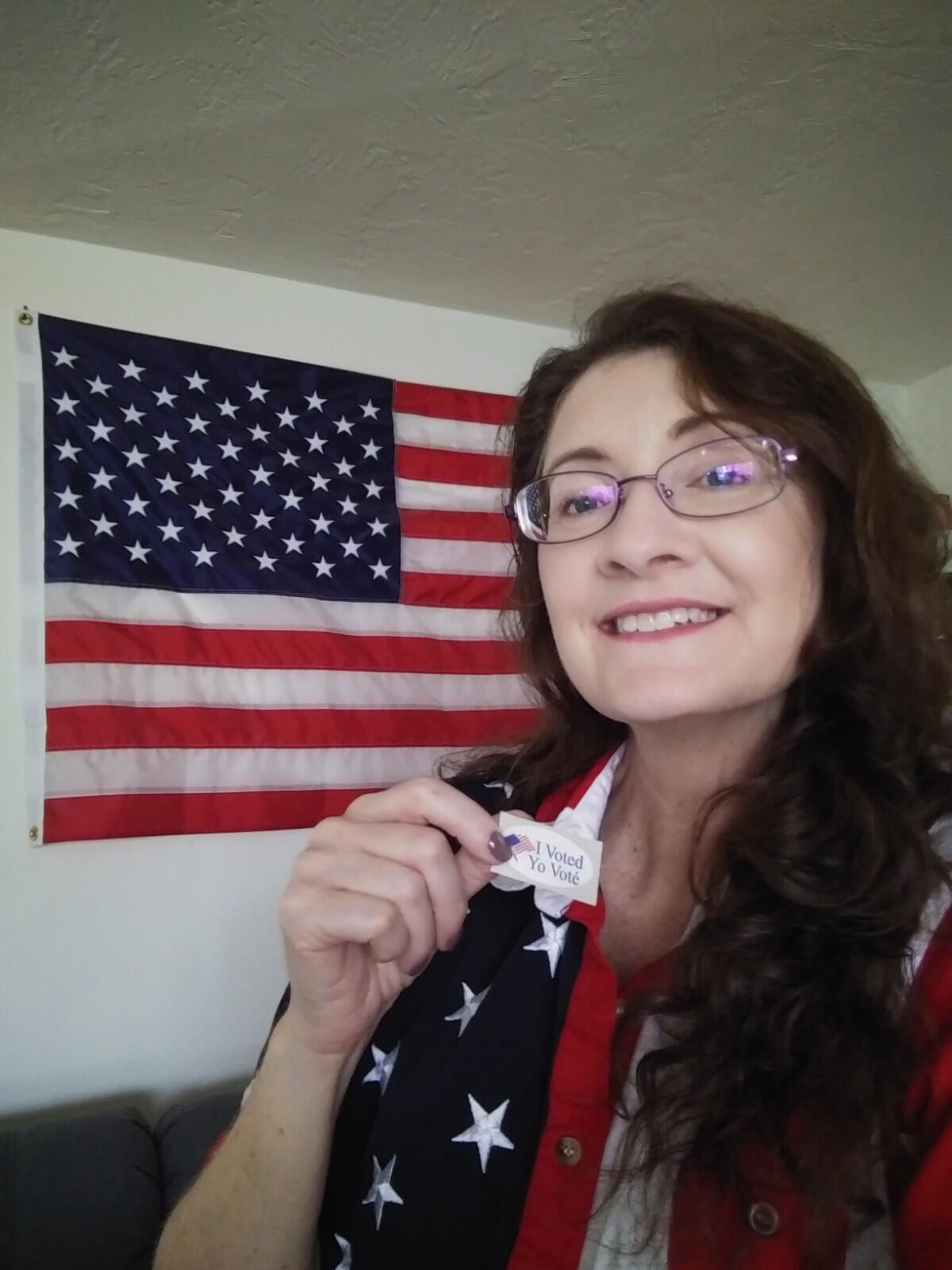Jan 31, 2023
Signal Your Recycling Virtue
BY Sandy Lender

Back in June 2022, the National Asphalt Pavement Association (NAPA) released a 34-page document titled “GHG Emissions Inventory for Asphalt Mix Production in the United States: Current Industry Practices and Opportunities to Reduce Future Emissions.” Within this report, authors Joseph Shacat, J. Richard Willis and Ben Ciavola shared data that confirms the asphalt pavement production industry within the United States had cradle-to-gate greenhouse gas (GHG) emissions representing a mere 0.3% of the total U.S. GHGs during the year 2019, which is the year of our industry’s highest production of the years studied.
What I’m drawing your attention to is this: During our most productive year of the study, the year representing the most mix we made, we were responsible for 0.3% of the total GHGs in the entire country. That means other industries were causing the other 99.7%.
If you’ve been reading my notes since 1998, you know what I’m about to write next. I’m about to suggest “the government” go after some of those big emitters and leave the 0.3% alone.
But, to beat a dead horse, why not put some more filters on some more equipment and capture some more droplets of smaller microns and spend some more money on some more research to find some more ways to lower the asphalt industry’s numbers some more? I mean, we can print as much research money as we need, right? The government will hand us a grant to study this stuff at this point. Let’s go for it.
Part of me wonders if I could become a multi-millionaire by inventing a stapler that will affix money to the clouds in such a way that it attracts GHGs upward, pulls them through the money’s paper, traps them on the moon’s side of the money’s surface, and keeps the emissions there like a fancy, research-funded net of Earth-saving awesomeness. Anyone who would like to contribute to the development of my Climate Change Stapler (CCS) can have their company logo printed directly on the money and will receive five free tweets to signal your virtue when the money-net is deployed.
To be serious, you can do more than put your logo on a website’s call to help our environment, and as a member of the asphalt industry, you probably already are doing more. I’m not sure how many times we have to say it, but asphalt is the top recycled product. What might be new to shout from the rooftops is a set of impressive stats gleaned by NAPA, in partnership with the Federal Highway Administration (FHWA), through the annual recycled materials and warm-mix usage survey and posted on the association’s website. We, as an industry, recycled 87 million tons of RAP into new mixes in 2020, which spared about 2.3 million metric tons of CO2 equivalent from the atmosphere.
Quick Update: Since press time, NAPA has released the “2021 Recycled Materials and Warm Mix Survey” report, in which the association compiled results from 261 companies with 1,388 plants in 50 U.S. states and the District of Columbia. Of the 101 million tons of recycled asphalt pavement (RAP) reclaimed, contractors reused 84.6 million tons in new asphalt pavements in 2021. This represents a 68.9% increase from the total estimated tons of RAP used in 2009, when the annual survey was first conducted. The survey again evaluated greenhouse gas emissions, and NAPA states it found RAP use saved 2.6 million metric tons of CO2 equivalent, which NAPA reports is the equivalent of removing 570,000 passenger vehicles from the road.
While I see no problem with the responsible and safe movement of virgin asphalt binder for our industry’s use, there is a loudly shrieking minority that thinks we have more rare-earth minerals than fossil fuels right now. And that screaming group should be pleased to know our industry replaced 24 million barrels of virgin asphalt binder with recycled binder from RAP and RAS in 2020. That not only saves costs for the end user, but it also sends a message to the people gluing their hands to pricy paintings in fancy museums. Think of the animals to be saved from the glue/cartilage factories if we let those folks know we’re reducing virgin asphalt binder use in favor of recycled material.
Stay Safe,
Sandy Lender
